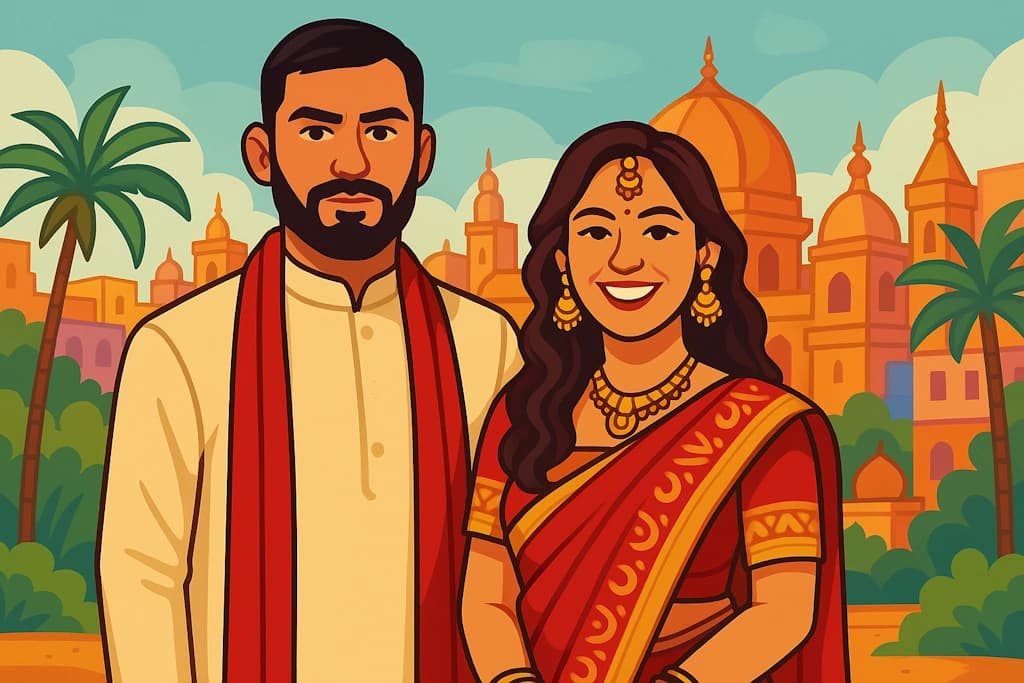Etymology and Evolution of Indian & Hindu Names
Indian and Hindu names represent one of the world's oldest and most diverse naming traditions, spanning over 5,000 years of cultural heritage. These names originate from various ancient languages including Sanskrit (संस्कृत), Tamil (தமிழ்), Hindi (हिन्दी), Bengali (বাংলা), Telugu (తెలుగు), and dozens of regional languages, each contributing to the subcontinent's rich nomenclature tapestry. The Hindu tradition emphasizes names with spiritual significance, often derived from deities, virtues, or cosmic elements.
Structure and Composition
Traditional Indian names typically consist of several elements:
- Given Name: The primary personal name (e.g., Rahul, Priya)
- Middle Name: Often the father's name or a family name
- Surname/Family Name: Indicates caste, community, or geographical origin
- Honorary Titles: Traditional prefixes like Sri, Kumar, or suffixes like -ji
Cultural and Religious Significance
Names in Indian and Hindu culture carry deep spiritual and cultural meaning:
- Sanskrit/Hindu Names: Often derived from deities (Krishna, Lakshmi), virtues (Dharma, Shanti), or natural elements (Surya, Chandra)
- Hindi Names: Sanskrit-rooted names popular in North India (Aditya, Priya, Arjun, Meera)
- South Indian Names: Tamil, Telugu, Kannada, and Malayalam traditions (Karthik, Lakshmi, Venkatesh, Sita)
- Punjabi Names: Often ending in Singh (male) or Kaur (female), reflecting Sikh traditions
- Bengali Names: Literary and cultural traditions (Rabindra, Saraswati, Tagore influences)
- Regional Variations: Gujarati, Marathi, Rajasthani and other linguistic traditions
- Modern Hindu Names: Contemporary names maintaining spiritual significance (Aarav, Saanvi, Vihaan)
Notable Indian Names in History and Culture
Indian names that have left their mark on history:
- Historical Figures: Ashoka, Akbar, Gandhi, Tagore
- Modern Icons: Ratan Tata, Amitabh Bachchan, Indira Gandhi
- Global Achievers: Sundar Pichai, Satya Nadella, Priyanka Chopra
- Literary Giants: Rabindranath Tagore, Sarojini Naidu, R.K. Narayan
Contemporary Naming Trends
Modern Indian naming practices reflect evolving social dynamics:
- Fusion Names: Combining different cultural elements
- Global Influence: Names that work internationally while maintaining Indian roots
- Gender-Neutral Names: Rising popularity of unisex names like Arya, Kiran, Suman
- Numerological Considerations: Names chosen based on numerical significance in Hindu astrology
- Shortened Forms: Modern preferences for shorter, easier-to-pronounce names
Regional and Cultural Specializations
Our generator offers specialized categories for authentic regional names:
- Sanskrit Names: Traditional Vedic and classical Hindu names with deep spiritual significance
- Hindi Names: Popular North Indian names derived from Sanskrit but adapted for modern usage
- South Indian Names: Tamil, Telugu, Kannada, and Malayalam linguistic traditions
- Punjabi Names: Sikh and Punjabi cultural naming patterns, often incorporating Singh/Kaur
- Bengali Names: Reflecting the rich literary and cultural heritage of Bengal
- Modern Names: Contemporary names popular among urban Indian families globally
Traditional Naming Ceremonies
Indian naming traditions include sacred ceremonies:
- Naamkaran: Hindu naming ceremony
- Aqiqah: Islamic naming tradition
- Nam Karan Sanskar: Sikh naming ritual
Indian names continue to evolve while maintaining their cultural roots, representing a beautiful blend of tradition and modernity. Whether choosing traditional Sanskrit-derived names or modern fusion variants, Indian nomenclature offers a vast spectrum of meaningful choices that connect individuals to their heritage while embracing contemporary global culture.
